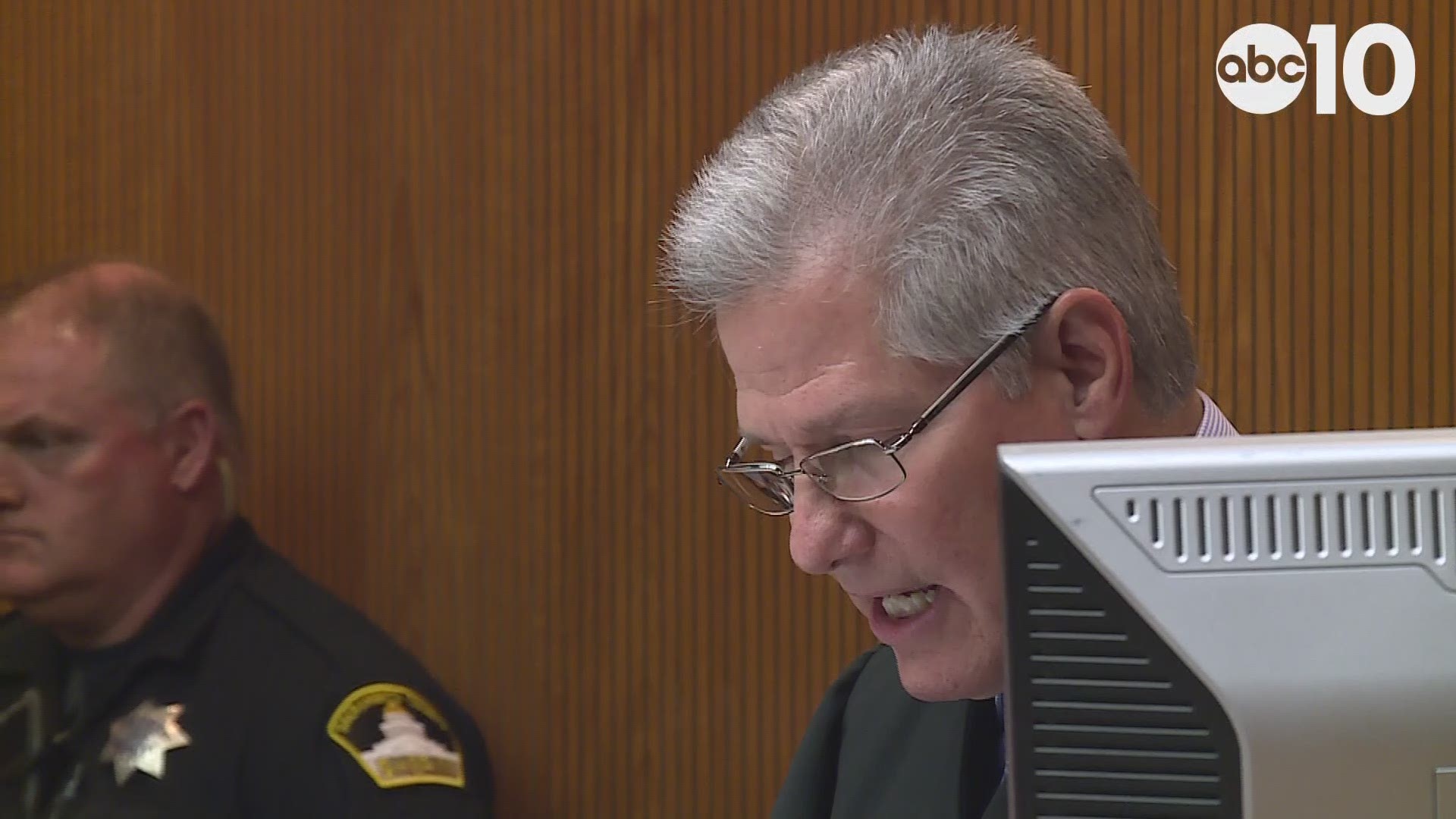A judge Tuesday said the potential release of redacted versions of warrants in the Golden State Killer case hinge on further discussion and deliberation of the defendant's right to a fair trial, victims' privacy and public information interests.
After reviewing materials concerning a motion to unseal the documents for several hours Tuesday, Judge Michael Sweet asked lawyers to return 1:30 Thursday for further hearing on the matter.
Joseph James DeAngelo stood handcuffed in a cell in a courtroom at the Sacramento jail during a hearing Tuesday, composed and looking stoically forward, as lawyers hashed out the issues behind unsealing the arrest and search warrants, comprising more than 100 pages.
Public defender David Lynch, representing DeAngelo, argued that the release of the documents would damage DeAngelo’s ability to get a fair trial as well as possibly tainting witnesses’ decades-old memories. He said that results of releasing the warrants would be “impossible now to gauge,” and that it was better to carefully weigh the matter "before that cat is out of the bag.”
“A very large concern is the effect (of the released information) on witnesses,” he said.
Duffy Carolan, a lawyer representing media organizations including the Associated Press, ABC, the Sacramento Bee, the Los Angeles Times and the San Francisco Times argued that in a city the size of Sacramento there should be no trouble finding 12 impartial jurors who haven’t even heard DeAngelo’s name – and even if they have, it doesn’t mean they can’t fairly assess the evidence.
There are other ways of winnowing out bias and prejudice that could jeopardize his right to a fair trial, such as a "vigorous voir dire" (the process of questioning potential jurors on a panel) and/or bringing jurors from outside the area, she said.
The prosecution lobbied fewer objections to the release, mainly citing privacy rights of victims, and noting that with well over 75 victims, it would be time-consuming to contact each one to find out if they wanted their identity withheld in the warrant.
Carolan said any redactions should be “narrowly tailored” to protect DeAngelo’s right to a fair trial and victim privacy while still addressing the public’s ‘first amendment right of access” to information and that people’s feelings of 'concern, outrage and hostility" would be best addressed by giving them “a better understanding” of how DeAngelo came to be charged in the 1978 slayings of Rancho Cordova residents, Brian and Katie Maggiore.
Sweet said he had concerns that information in the requested documents had nothing to do with their slayings, and that if the information contained in them did not relate to issues such as the perpetrator’s motives, intent and methods, its release could be premature. Carolan countered citing case law that supported a different standard for evidence admissible in a trial to that released to the public.
“The public is not limited by what jurors are allowed to hear,” she said.
Several victims of the East Area Rapist were among the crowd that packed the small courtroom Tuesday.
Kathy Jouganatos, who was 18 in 1977 when she was victim No. 17 in the series of rapes attributed to the East Area Rapist was among those in attendance. Jouganatos said the memory of the attack, 41 years ago, was still seared in her memory, and that she doubted reading anything about the case would imprint on her.
“I remember everything, minute by minute,” she said.
But for her, the biggest issue was justice for the victims -- making sure the guilty party was held accountable for his crimes.
“I don’t want to see anything interrupt the process,” she said.

